Top 10 Truck Preventive Maintenance Tips

When you’re out on the road, the last thing you need is a breakdown in the middle of nowhere. If you want your truck to run smoothly and avoid dead mileage, rough hitches, or tricky bumps, you’ve got to get serious about truck preventive maintenance. It’s not being smart, but rather a survival.
It would be ideal if one had a magic machine that foresaw blowing tire signals weeks in advance or an abnormally slowly dying battery during freezes. Robust truck preventive maintenance gives you the power to spot any minor issues before they become big. This helps you save money and time for the future. If you invest in regular maintenance, you will be able to save out-of-the-blue repair costs. A well-maintained truck isn’t just about avoiding breakdowns; it’s about performance and safety. When your truck’s in good shape, it runs like it should, and that keeps you safer on the road. Plus, you’ll spend less time in the shop and more time hauling.
Truck Preventive Maintenance Checklist
A truck maintenance checklist is your reliable partner for keeping track of all the tasks that need to be done. It enables you to take corrective actions that can save you a lot of money— and in the worst cases, time you’d otherwise be losing if your equipment shut down for an entire day. Being organized isn’t the only benefit here; it’s also about ensuring your safety every time you start the engine.
Your truck’s preventive maintenance checklist should consist of an exhaustive inspection of almost everything, including the tires, fluids, brakes, lights, and engine components. After you get the practice down, it becomes a routine – one that pays dividends. If your truck’s in good shape, you’ll be spending more time out there instead of seated in the mechanic’s waiting room. That’s good for your cash flow – and reduces unexpected costs.
1. Maintain the Battery for Optimal Performance
The truck’s battery is the primary component of its electrical system. You won’t get far if it breaks. That’s why it is so crucial to check a battery’s condition regularly. Look for any signs of corrosion, evaluate the voltage, and don’t forget to clean those battery terminals.
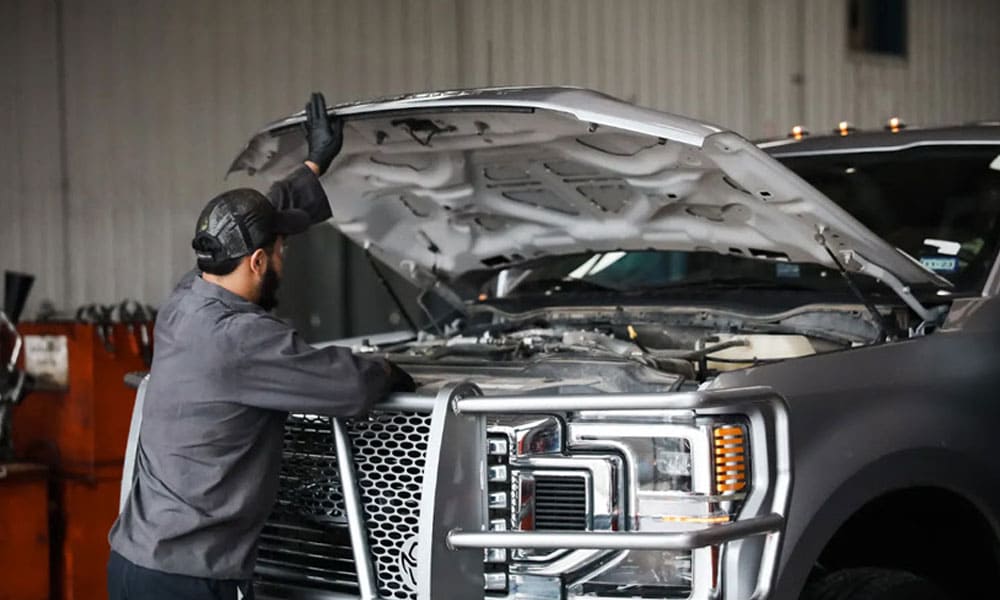
By maintaining your battery on a regular basis, you will be able to ensure that it functions optimally, and no electrical issues will occur while you are on the road. If your truck is often exposed to extreme weather conditions, heavy truck maintenance becomes even more critical. So, you won’t find yourself towards the end of the line waiting for a jump or a tow if you keep it clean, charged, and properly maintained.
2. Ensure the Starter Motor Has Clean Electrical Connections
The role of a starter motor is very crucial in powering up a truck. No one wants to experience the frustration of starting their truck only for the starter motor to suddenly give up. This makes checking the electrical connections all the more important. A loose wire or corroded dirt build-up could spell disaster for your starter.

You need to clean and inspect the electrical connections to check whether they are secure, tight and corrosion-free. If you do this and provided regular maintenance to the truck, you will save your truck from experiencing any inconvenient breakdowns and prolong starter motor’s lifespan. Besides cleaning the connections, you must also check if any wires are loose or have gotten worn out. If the wiring is faulty or corroded, you will likely face issues in the electrical system of the vehicle.
3. Look for Oil Leaks to Prevent Engine Damage
Engine oil has a very essential role in keeping the engine well-lubricated and smooth. Check for oil leaks on a regular basis to verify that the engine has sufficient lubrication. If you leave the oil leaks unattended for a long time, it can cause the system to overheat, which will lead to significant mechanical failures. Identifying oil leaks early is a key part of truck preventive maintenance, as a small leak can lead to devastatingly costly repairs and damage.
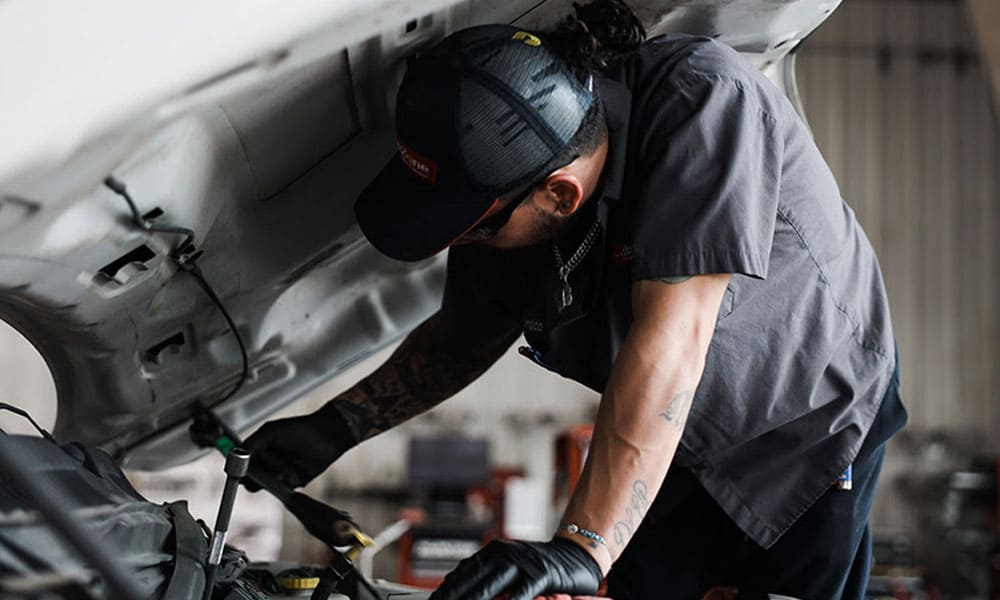
Inspecting your engine on a regular basis helps you avoid expensive repairs later on. A small leak can escalate into a major issue if ignored. Keep an eye on oil levels and look for any signs of oil puddles under the truck after parking. Properly addressing oil leaks will help keep your truck’s engine running smoothly for years to come.
4. Avoid Locked or Worn-Out Brakes
Brakes are more than parts – they are your safety net. If your brakes are worn or seized up, you could be putting yourself, your truck, and other motorists in danger. Frequent checks on brake pads, drums, rotors, air brake lines, and other components are necessary, especially during heavy hauls.
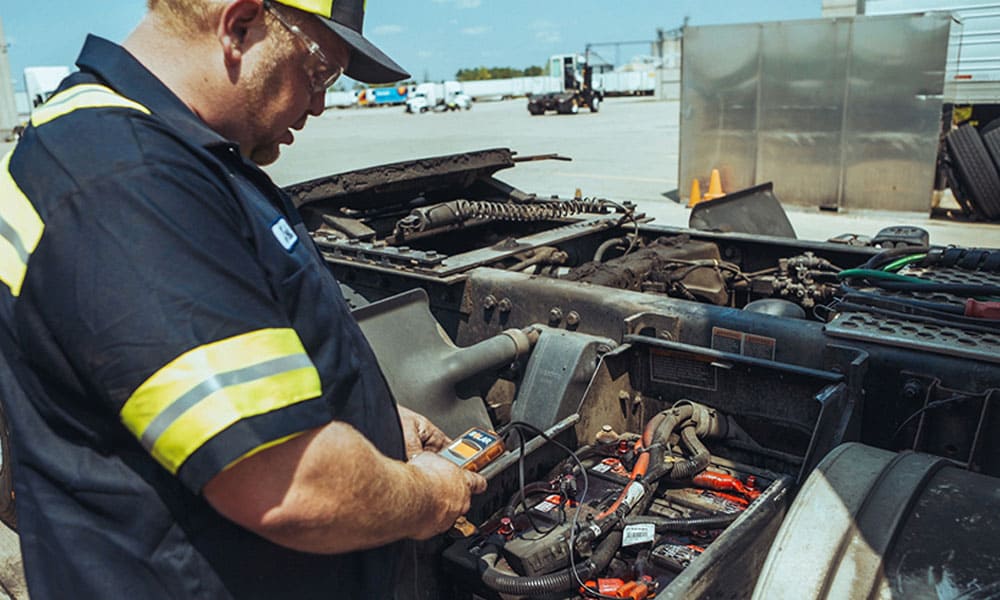
Grinding, delayed stopping, and soft pedals are signs of a problem. Do not ignore them. Truck preventive maintenance for trailers and trucks must include brake inspection for each and every component. A braking system needs to be there for your safety and the control you need as a driver.
5. Check Your Tires Daily for Safety and Performance
Your tires carry everything – the driver, truck, load, and even your reputation. This should tell you why a truck’s tires need proper and timely service during heavy vehicle maintenance. A daily maintenance schedule ought to include checks for tire air pressure as well as cracks, bulges, or punctures in tread or sidewall areas.
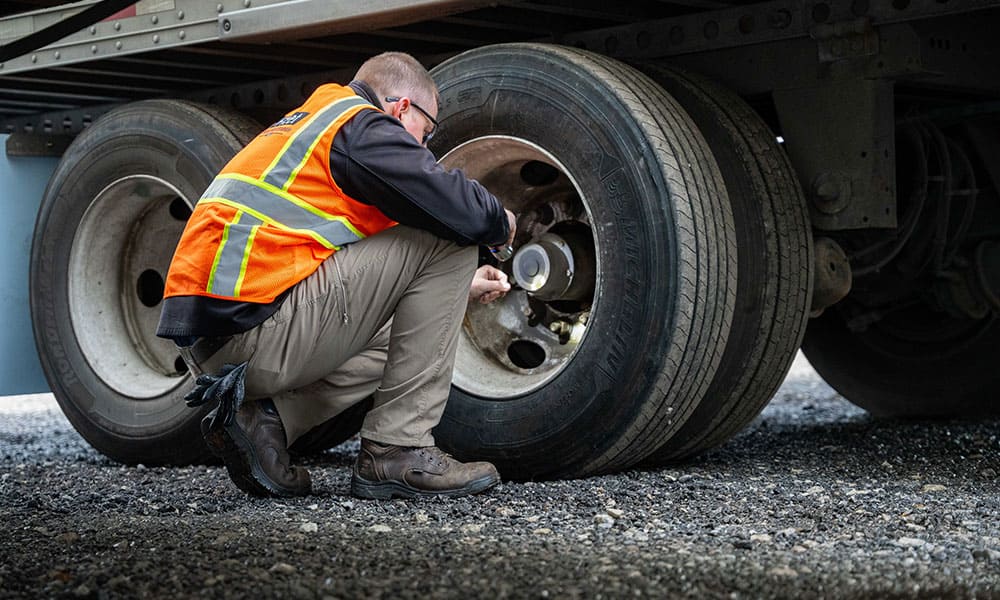
Tires that are well-maintained prove to be more efficient when it comes to fuel usage, vehicle stability, and traction – especially during extreme weather conditions. Don’t be careless; check for wear, tread depth, and rotation. If your tires show signs of wear, performance and safety are both at risk. Put in the time; you will definitely thank yourself.
6. Change Filters on Time for Engine Efficiency
An efficient truck engine requires maintenance of three essential components: air filters, fuel filters, and oil filters. Damage to the internal parts may happen if the filters are clogged or dirty, which also reduces the performance of the engine. For truck preventive maintenance, changing the filters on schedule is of utmost importance. The timely replacement of filters keeps the engine functioning steadily without interruption, optimizing fuel consumption and enhancing performance.
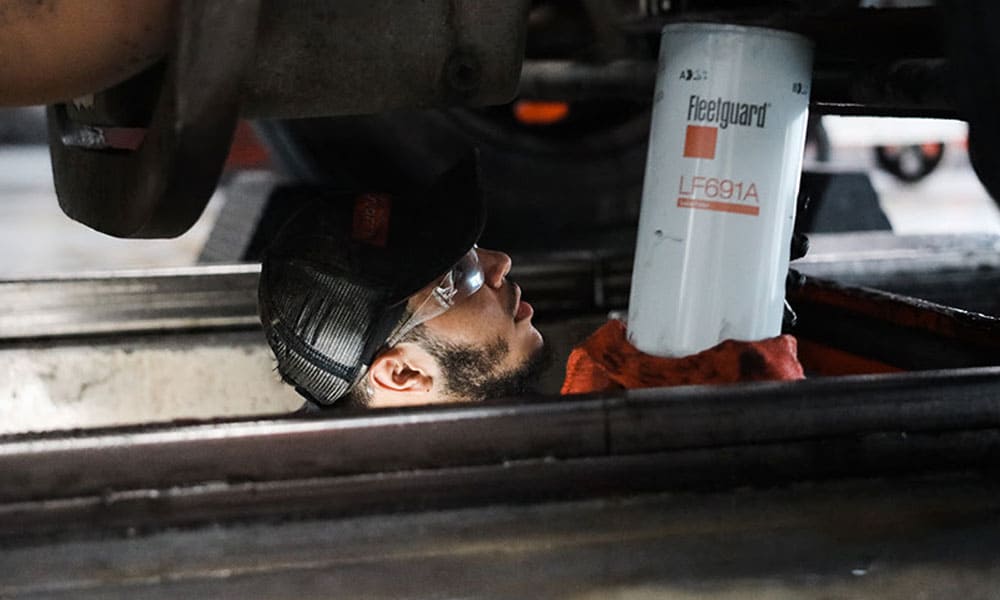
7. Check the Air Bags for Cracks and Damages
The important components of truck suspensions are the airbags that absorb the shocks, causing the truck to ride softer, particularly when it is loaded. If these components leak or crack, the driver begins losing touch with the road. A truck PM service can spot any cracks or leaks that need to be fixed in time for the suspension to work properly.
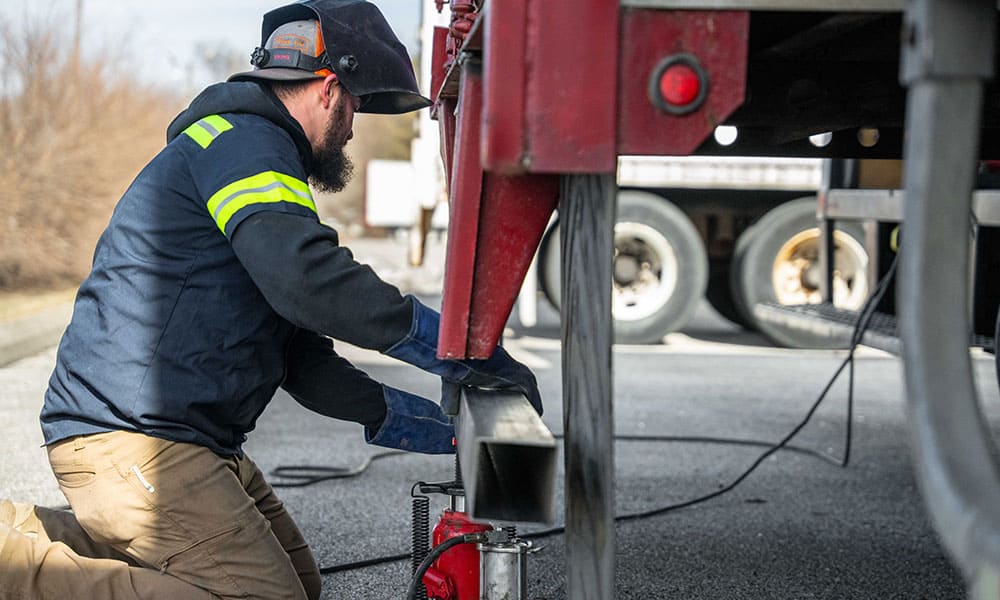
Damaged spring airbags equally serve to worsen the steering reaction, especially under heavy weight during abrupt turns. It is essential to maintain the air suspension system correctly, not only for the ride but also for driving control over long distances.
8. Prevent Clutch-Related Issues with Regular Checks
Problems with the clutch may affect a truck’s drivability. The clutch that is slipping or malfunctioning can cause the gears to be difficult to shift and could even lead to a transmission failure. Constant monitoring of the clutch to prevent it from any signs of wear is a key factor of maintenance for trucks.

Look out for burning odors and slipping, in addition to rough engagements. Perform routine maintenance and checks to guarantee that all truck components, especially clutches, are functioning properly. Remember: a clutch is your connection between the engine and wheels. Don’t wait for it to fail; stay ahead of the issue.
9. Check Fluid Levels to Prevent Overheating and Damage
Your truck is powered by more than just fuel. It also requires coolant, transmission fluid, and engine oil. Having these fluids at a low level can result in dire consequences, such as overheating or complex brake problems.
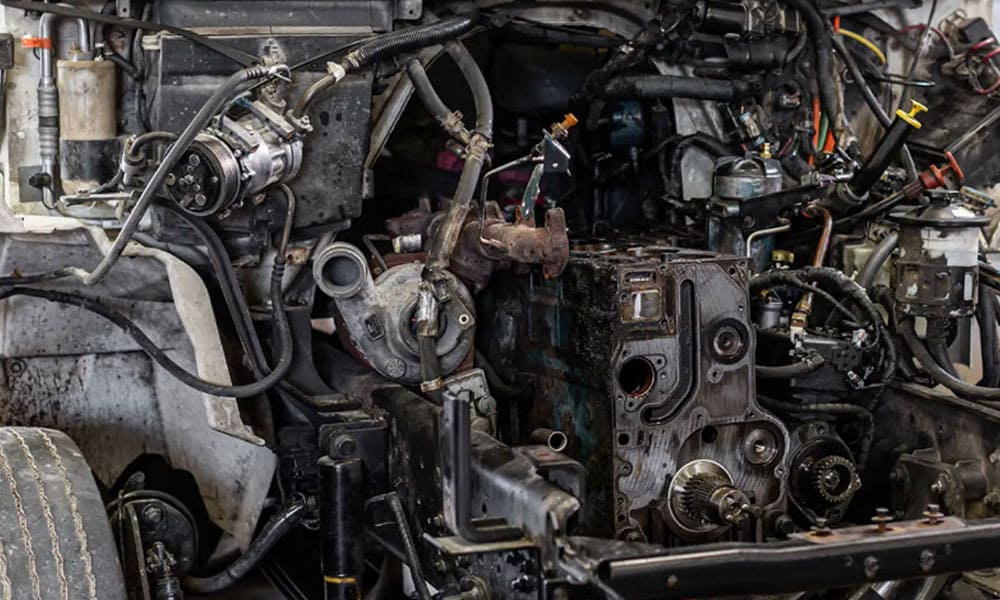
To avoid this, as part of your truck preventive maintenance, regularly inspect and refill fluids. Try to locate leaks visually and take a look under and over the hood. Maintaining the right fluid levels will reduce the need for repairs and help your truck last significantly longer.
10. Service Your Fifth Wheel Plate for Smooth Operation
A fifth wheel plate is an integral part of a truck that connects a vehicle with a trailer. It requires daily monitoring to keep everything connected seamlessly. Essentially, check your fifth wheel plate for any signs of defects or damages and regularly grease it to prevent rust and friction.

A fifth wheel plate is the most vulnerable part during long trips, and thus, it needs to be examined during trucking maintenance. Maintaining this component will lessen the likelihood of difficulty hooking up or releasing a trailer, potential trailer disconnects, or steering problems.
Reduce Unnecessary Costs with Commercial Truck Maintenance
Truck preventive maintenance is an effective strategy owners can adopt to minimize the chances of encountering problems while extending the vehicle’s lifespan. Beginning from the simple things like checking tire pressure and maintaining fluid levels to inspecting the brakes, you can stop the major mechanical failures. Regular maintenance is a good way to reduce repair costs, and it is also a more affordable way of maintaining your truck.
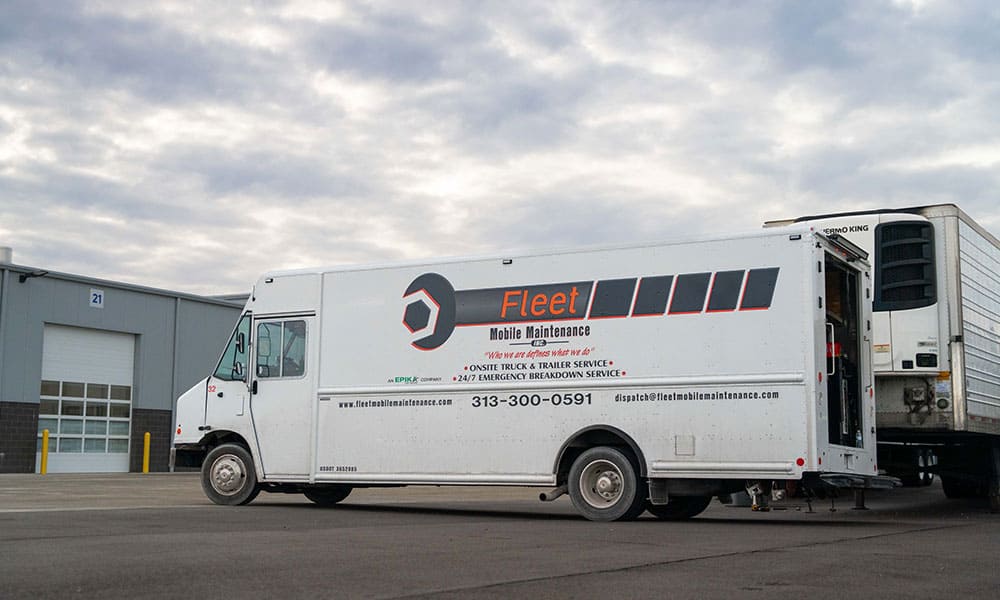
Moreover, regular truck maintenance is a beneficial practice that also leads to fuel efficiency and reduces operational expenses. Truck owners can avoid costly repairs with regular maintenance, as well as gain the truck’s overall efficiency. Integrating GPS tracking into your truck can also help in saving costs greatly as you know where exactly your vehicle is.
Conclusion
Truck preventive maintenance is of great importance if you want to keep your vehicle in good working condition. This way, you will be able to avoid unexpected truck breakdowns. By regularly inspecting that the battery, tires, and brakes are in their optimal condition, truck owners can extend the lifespan of their vehicles and reduce costly repairs. Performing simple preventive measures not only improves safety but also enhances your truck’s performance. Maintain your truck regularly to save money in the long run and have a trouble-free driving experience.
For reliable and top-quality truck maintenance solutions, choose Epika Fleet as it is your trusted partner for reliable truck maintenance and top-tier fleet solutions!
